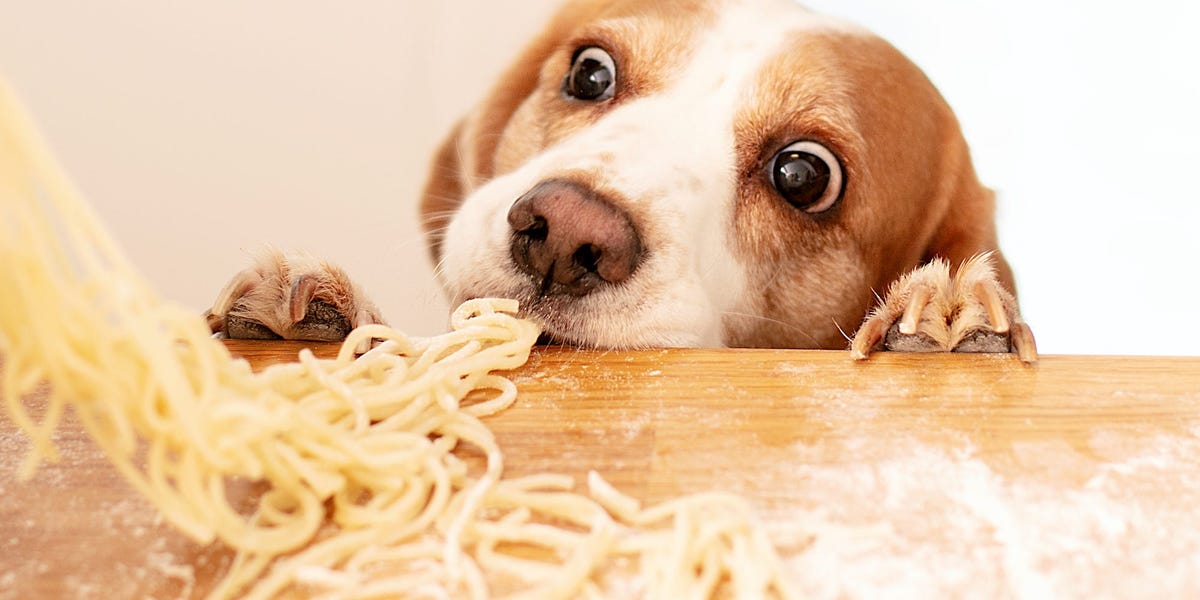- December 29, 2022
- No Comment
- 5 minutes read
Human-grade dog food leads to less poop, maybe not better nutrition – Business Insider

Using human-grade food makes your dog poop less. But it may not be better for their health.
A 2021 study followed the poop output of 12 dogs fed “fresh” dog food (from the FreshPet brand), classic dog food ( from Blue Buffalo), or “human-grade” beef or chicken dog food (JustFoodForDogs) for 28 days.
The study found that the dogs pooped around half as much when eating fresh and human-grade food — a drop of 50% to 70%. They also had to eat less food to maintain the same weight.
Though this has an obvious practical benefit — less poop to pick up — experts said it’s not clear how that affects the health of the dogs.
“If you want a smaller poop when they go down the Manhattan sidewalk, feeding a home-prepared type of diet is definitely a better option for low stool volume,” Joseph Wakshlag, professor of clinical nutrition at Cornell University College of Veterinary Medicine, told Insider.
But outside of that, the effects are unclear, he said.
Wakshlag says the study was just one of a dozen looking at the effect of home-cooked meals on dog nutrition. None so far have definitively shown that kibble or canned food is worse for the dog’s health or lifespan, he said.
“The only thing we know is that digestibility is better. That just means I get more nutrition from what I’m putting in than what’s coming out,” he said.
“Is that better? Is your dog gonna live longer? Is your dog not gonna get a certain disease? We don’t know that,” he said.
The risk with feeding your pooch a home-cooked meal is also that you might not strike the right balance of protein and vitamins for your pet, which is different from the nutritional needs of humans, Wakshlag said.
Kibble, on the flip side, has been specially designed to concentrate all the protein and vitamins your pet needs in a small portion.
It’s true that kibble and canned food have to be treated to extend their shelf life. In the process, molecules that could be bad for your dog’s health appear in the food.
But they are in very small quantities — comparable to the effect of barbecue-grilling a steak, which also adds unhealthy particles, Wakshlag said.
Feeding your dog high-quality or home-cooked meals can also be expensive and time-consuming, Wakshlag noted.
“Home cooking requires time commitments and the right balance. It can be done — it’s just, as I say to people: you don’t like spending $120 on a bag of dog food, a high-end therapeutic food, or whatever, so you’re gonna cook. It’s still gonna cost you $4 a day to feed your dog,” said Wakshlag.
Kelly Swanson, professor of animal and nutritional sciences at the University of Illinois and lead author on the study, told Insider in an email that owners should also be wary of labels.
“The ‘natural,’ ‘organic,’ and ‘human-grade’ terms all refer to the source of ingredients. While those ingredients may be of high quality (e.g., nutrient-dense; highly digestible), it does not guarantee that the diet will be,” he said.
“The formulation (how ingredients are used together to make a complete and balanced diet), nutrient concentrations (e.g., what protein, fat, and fiber levels), and amount and type of processing (e.g., extrusion; retorting/canning; pasteurization; baking) of the diet are also very important factors,” said Swanson.
Read next

